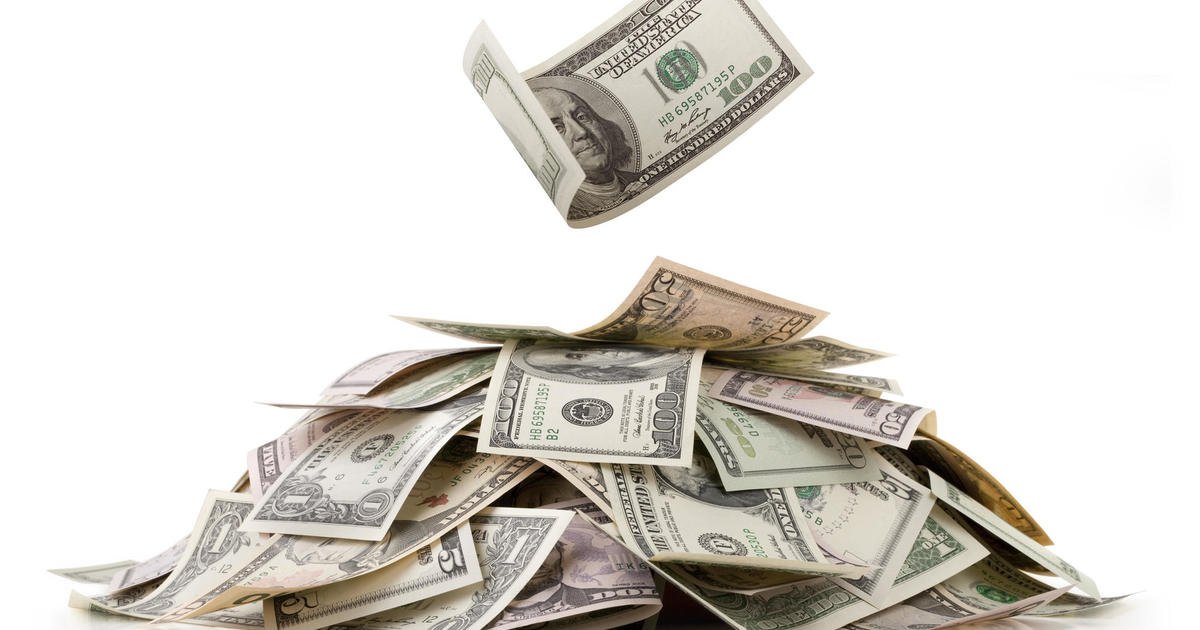Americans worry their federal stimulus checks won't last long
As the U.S. directs billions in so-called economic impact payments to help Americans stave off financial calamity, many recipients worry it won't be enough given the vast scale of the economic damage caused by the coronavirus.
The $1,200 stimulus check "is a little short of my necessities to pay my bills for one month," said Lauren Noto, a paralegal in the Washington, D.C., area, noting that she's fortunate in being able to work from home during the public health crisis. "I'm certainly grateful for it, but it's not really enough for what is looking like a protracted recession."
Noto plans to set most of the federal payment aside out of concern for how bad the economy might get in the months ahead, as well as donating a portion to local food banks and charities. Other Americans also told CBS MoneyWatch they will bank the money in case they lose income or their jobs, while some will use the funds immediately for bills like utilities and rent or for longer-term goals like home-improvement projects.
"Some people are worried about how far this will go," said Jason Rodriguez of Los Cruces, New Mexico, who received his payment last week and works in health care administration.
Although his job is defined as essential, he remains concerned about the future. "It's scary to think I could lose my job." Rodriguez said, "I'm grateful for it, but $1,200 — I'm not sure if it covers much."
A "profound, prolonged" downturn
The stimulus checks are rolling out to 80 million taxpayers this week, with single Americans earning less than $75,000 receiving $1,200 and married couples who earn less than $150,000 getting $2,400. Families with children under 17 also receive $500 per child. (Taxpayers who earn above those income thresholds will receive incrementally less until the stimulus payments phase out at $99,000 for singles and $198,000 for married couples.)
Even though the $2.2 trillion CARES Act package of government aid programs that created the stimulus payments was passed only three weeks ago, the economic environment is deteriorating at a breathtaking pace. Prior to the crisis, the U.S. had enjoyed a 50-year low in unemployment, with a Trump administration official noting late last year that "we have more jobs available than workers to fill them."
Now, about 1 in 7 workers are unemployed, with 22 million jobs lost in the last month alone. Economists, who had only a few weeks ago predicted a mild slowdown and swift recovery from the spread of the COVID-19 disease, are now warning that the downturn could last longer than initially forecast.
"The downturn will be pervasive – across all industries and regions – profound, prolonged and the economic cost will be immense," Oxford Economics predicted in a report on Friday.
The question on many consumers' minds: Will lawmakers in Washington come through with another round of stimulus payments. Some countries are making recurring monthly payments to citizens impacted by the pandemic, such as Canada's plan to provide $2,000 per month.
"They will have to think about more long-term solutions to get people through this," paralegal Noto said.
Unequal impact
The crisis is hitting households unequally, with many white-collar workers like Noto and Rodriguez able to continue working from home. But others, like 23-year-old Cody Brooks of Texas, lost jobs when state and city "stay at home" orders effectively shuttered their employers. Brooks had worked for a furniture removal business before the pandemic hit and cost him his job.
He said his $1,200 payment was sent to the wrong bank account, an issue that Brooks doesn't know how to fix. Even if he had the money, Brooks said, "that would last me probably maybe a good two weeks." For now, he's planning to dip into his college savings and hoping to get through to the Texas unemployment office.
Consulting firm McKinsey estimates that one-third of U.S. jobs could be vulnerable, with about 80% of the most at-risk jobs held by low-wage workers. Meanwhile, some of those workers may have to wait for weeks to receive their stimulus checks. That's because the IRS is prioritizing taxpayers who sent direct deposit banking information to the agency with their tax returns.
About 13 million poor Americans lack even basic bank accounts and may need to wait for paper checks to arrive in the mail, with the tax agency saying it plans to begin sending the payments in early May.
The CARES Act also excludes adult dependents, such as college students, and immigrants other than Green Card holders, said Chuck Marr, the senior director of Federal Tax Policy at the Center on Budget and Policy Priorities.
The coronavirus crisis hit at a time many American households were already struggling to pay their monthly bills. A study published last year found 4 in 10 households were considered "liquid-asset poor," or without enough money socked away to cope with a sudden disruption in income.
"Americans were in a fragile state before the crisis," said Urban Institute economist Signe-Mary McKernan. "We know that half of households didn't have $2,000 in household non-retirement savings."
Still waiting
Some taxpayers say they're in limbo about the status of their stimulus checks, leading to anxiety and financial stress. It's unclear how many haven't been able to access the IRS "Get My Payment" website, which is supposed to let users determine when they'll get their money. But dozens have reached out to CBS MoneyWatch to say they've repeatedly received a "Payment status not available" message.
That can happen if the IRS is still processing a recently filed 2019 tax return, but some taxpayers who encountered the message said their returns had already been processed and their tax refund sent to them. The message left them unsure about when or if they'll receive the stimulus check.
One of those is Erin Feldman Todd, a single mother in Denver who isn't sure when she'll receive a stimulus check of $1,200 for herself and $500 for her 10-year old son. Without the funds, she'll be short on her bills when they come due next month, she said. Her income was reduced after her employer, a jobs website, cut her hours to 25 per week from 40 hours because of a loss in clients.
With two weeks until her mortgage is due and no sign of the stimulus check, Feldman Todd said she is considering taking on a side job to earn some money. She's still hoping the check arrives soon, estimating it would cover about six weeks of expenses.
"It doesn't buy me a ton of time, but it would be enough to maybe let things bounce back so maybe my hours could go back up," she added.



